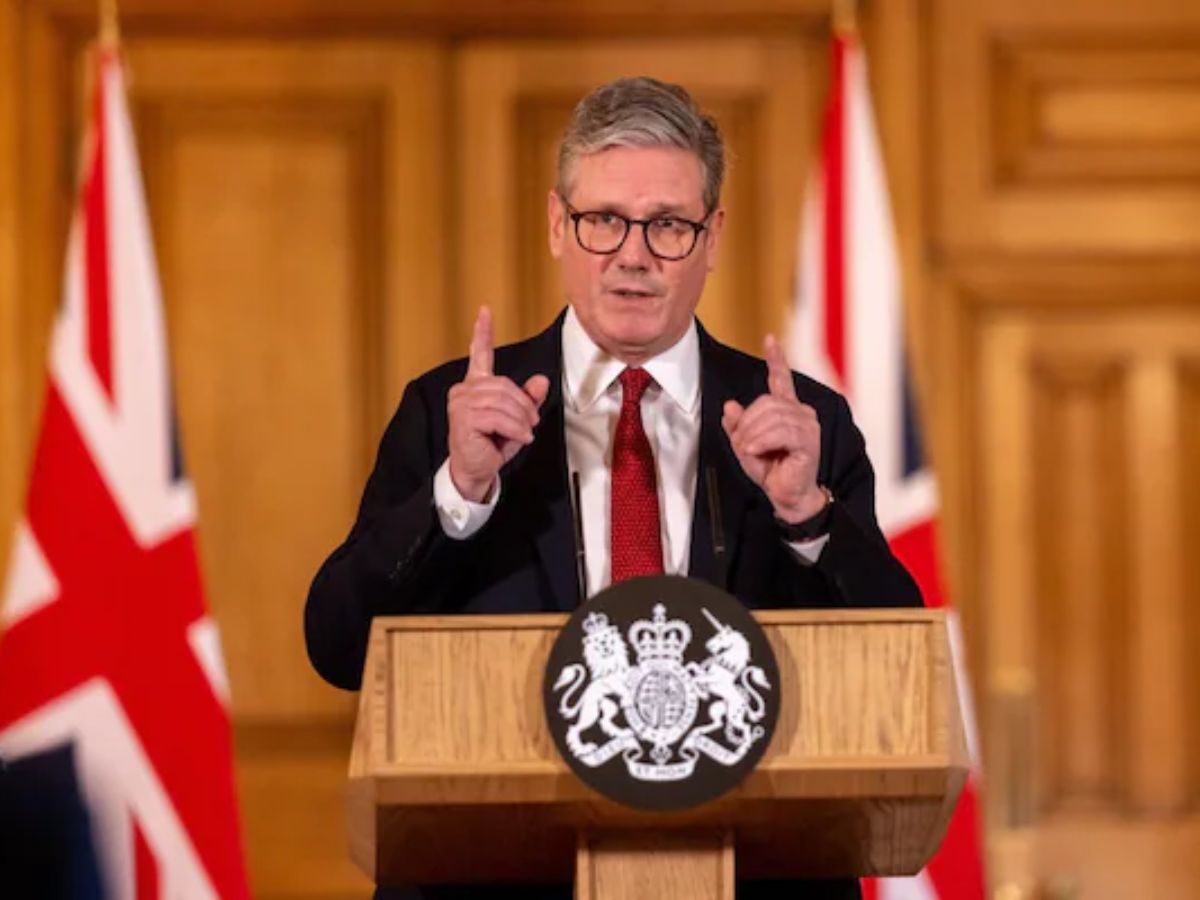Days after Prime Minister, Sir Keir Starmer announced that UK will recognize Palestine formally as a state, some of the country’s top lawyers have raised questions saying that the move may violate the international law.
PM Starmer had recently announced that the UK would likely recognising Palestine if Israel does not agree to announce a ceasefire and revive the two-state solution.
The top lawyers according to BBC include a group of 43 peers, including former Supreme Court justices and prominent legal experts.
According to the reports, thr group argues that Palestine does not fulfil the legal requirements for statehood as outlined in the 1933 Montevideo Convention. The group rallied there concerns via in a formal letter that was delivered to the government’s Attorney General, Lord Hermer, according to a report by The Times.
Why Are Legal Experts Invoking The 1933 Montevideo Convention?
Under the Montevideo Convention, a state must meet four criteria – a defined territory, a permanent population, an effective government, and the capacity to enter into relations with other states. The peers contend that Palestine currently does not meet these conditions.
Also Read: Canada to Recognise Palestinian State in September, PM Mark Carney Says
“It is clear that there is no certainty over the borders of Palestine,” the letter states. The peers also highlight the absence of a unified government, citing the deep divisions between Fatah and Hamas. “The former has failed to hold elections for decades, and the latter is a terrorist organisation, neither of which could enter into relations with other states,” the letter continues.
Signatories Claim Recognizing Palestine Will Undermine International Law
The signatories warn against undermining international legal frameworks, “it would be unwise to depart from the Convention at a time when international law is seen as fragile.”
They added that Lord Hermer himself had previously cautioned that a “pick and mix” approach to international law could lead to its disintegration.
They urged the Attorney General to affirm his commitment to legal principles, “accordingly, we expect you to demonstrate this commitment by explaining to the public and to the government that recognition of Palestine would be contrary to the principles governing recognition of states in international law.”
What is UK Government Saying About Montevideo Convention
Business Minister Gareth Thomas defended the UK’s approach, arguing that the Montevideo Convention does not bind Britain. Speaking to Times Radio, he said, “we haven’t signed up to the Montevideo Convention, but is there a clear population in Palestine? Yes, there is in Gaza and the West Bank.”
Thomas reiterated that any recognition would be based on internationally accepted parameters, including the 1967 borders with land swaps and Jerusalem as a shared capital. He emphasised the need for reform within the Palestinian Authority and stated firmly that “Hamas can have no role in the future government of Gaza and Palestine more generally.”
Thomas also pointed to international support, noting that 147 of the 193 UN member states already recognise a Palestinian state. He highlighted that Canada had recently announced plans to recognise Palestine in September, and that the UK was in active dialogue with several countries regarding coordinated action.
UK Announces To Recognize Palestine Formally
The UK has stated that it would formally recognise a Palestinian state at a UN summit in September unless Israel meets a series of conditions. These include allowing more humanitarian aid into Gaza, halting annexation activities in the West Bank, agreeing to a ceasefire, and committing to a long-term peace process.
On the Palestinian side, Sir Keir has called for Hamas to release all remaining Israeli hostages, agree to a ceasefire, disarm, and “accept that they will play no part in the government of Gaza.”
Also Read: At UN Peace Summit, Arab States Demand Hamas Disarm and Cede Power in Gaza
Zubair Amin is a Senior Journalist at NewsX with over seven years of experience in reporting and editorial work. He has written for leading national and international publications, including Foreign Policy Magazine, Al Jazeera, The Economic Times, The Indian Express, The Wire, Article 14, Mongabay, News9, among others. His primary focus is on international affairs, with a strong interest in US politics and policy. He also writes on West Asia, Indian polity, and constitutional issues. Zubair tweets at zubaiyr.amin







